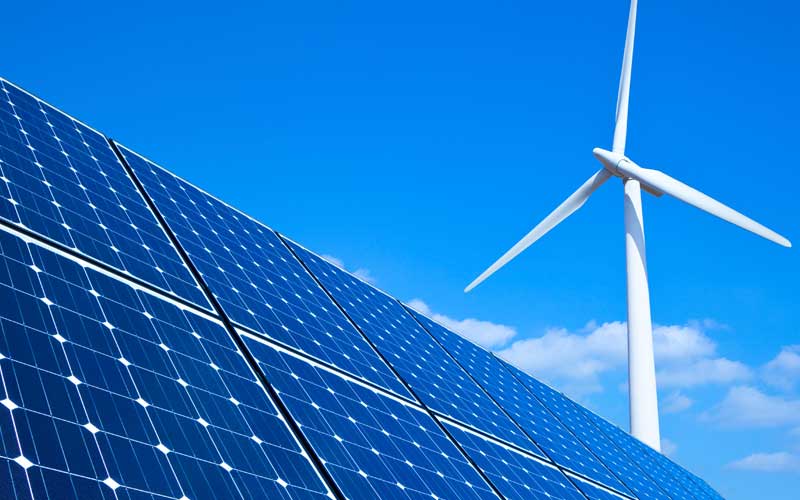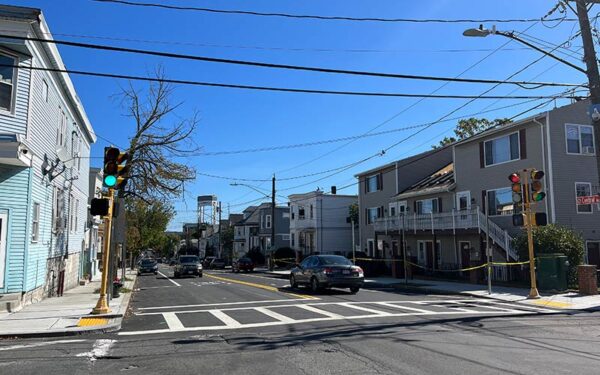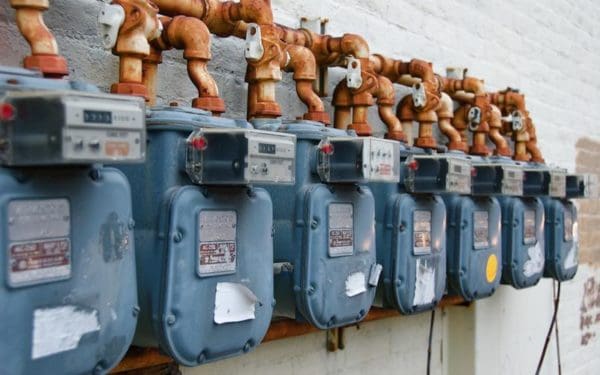
Renewable energy sources like solar and wind can successfully power our grid without the need for new pipelines. Photo: Shutterstock/Eyematrix.
New analysis from the regional grid operator, ISO New England (ISO), confirms what CLF and other experts have been saying for some time: New England doesn’t need expensive natural gas pipelines to keep the lights on and our homes warm even during our harshest winters. In fact, thanks to the growth of clean, renewable energy, by 2025, we’ll even be able to cut back on dirty polluting power plants that use natural gas.
Grid Operator Corrected Its Controversial Fuel Study, But Isn’t Talking about Rosier Results
The results of ISO’s new analysis may come as a surprise given that it released a report in January that painted a much bleaker picture of our energy future, one with fuel shortages and rolling winter blackouts within ten years. ISO’s CEO, Gordon Van Welie, has spent the last few months touring New England, warning policymakers, industry stakeholders, and reporters that only drastic action, such as building massive new gas pipelines, could avert this (literally) dark future.
But that January report was based on faulty assumptions about what our fuel supply and energy grid look like today, let alone in ten years. When CLF and a dozen other groups asked ISO to correct its faulty assumptions and re-run the analysis, it did, with starkly different results.
Now that ISO knows the sky isn’t falling, you would think that Van Welie would be doing everything he can to make sure the public and, especially, policymakers are aware of the updated findings. But instead, ISO is standing by its original report, refusing to amend it with the updated data.
Since ISO wouldn’t publish its corrected findings, CLF and our partners did. A study recently released by Synapse Energy Economics looks at the problems in ISO’s original report alongside the results of its corrected analysis. The bottom line: As long as New England states stay on track to meet clean energy and energy efficiency goals, we’ll be just fine.
ISO’s Original Study Did Not Reflect Today’s Reality, Let Alone Tomorrow’s
As we’ve written, as soon as we reviewed ISO’s January analysis, the flaws were glaringly clear. ISO had developed a baseline scenario from which to examine how changes to individual factors in our energy supply would affect reliability – and therefore our risk for power outages. But that baseline failed to acknowledge a host of successful state-level clean energy and efficiency programs and the impacts they’ll have on the power grid in the next six or seven years. So the more than 20 scenarios ISO spun off of that baseline were all skewed as a result.
To correct this flawed baseline scenario, CLF and a group of 13 other stakeholders – including private power companies, state consumer advocates, three state Attorneys General, energy developers, and other environmental groups – asked ISO to re-run its analysis, using these correct assumptions:
- New England states will continue to meet their existing mandates that require increasingly higher percentages of electricity come from new clean, renewable energy sources.
- Trends in savings from energy efficiency, upticks in solar power, and demand for electricity will continue as ISO itself has forecasted for the next 10 years.
- Regional natural gas markets, particularly for liquefied natural gas (LNG), will remain profitable and reliable sources of on-demand energy, as they have for the last several years.
Ultimately, these assumptions are the “business-as-usual” scenario – they’re what’s happening right now and we have no reason to believe things will change. States have so far been meeting their mandates for clean energy, forecasted trends have panned out, and resources have remained reliable even during the coldest winter days.
Our Future Is Bright and New Pipelines Play No Part In It
When ISO re-ran its analysis with these correct assumptions, the results for every potential scenario were predictable:
Reliability concerns: 0. Rolling blackouts: 0. New pipelines needed: 0.
The analysis shows that New England’s grid will run smoothly even under conditions that we’re unlikely to ever experience, but which would be catastrophic if they occurred.
Keep in mind, this is ISO’s analysis that puts New England in the clear. This should put to rest any lingering debate about the need for new fossil fuel pipelines in New England. We don’t need expensive new pipelines now, and we won’t need them later. But until ISO and Van Welie publicly disavow and amend their January report, there’s a risk that well-meaning policymakers will make decisions based on the flawed data.
We can’t allow our energy and climate future to be derailed. We are on the right track to an energy system built on clean, renewable sources that will secure our grid, help our climate, and boost our economy.


